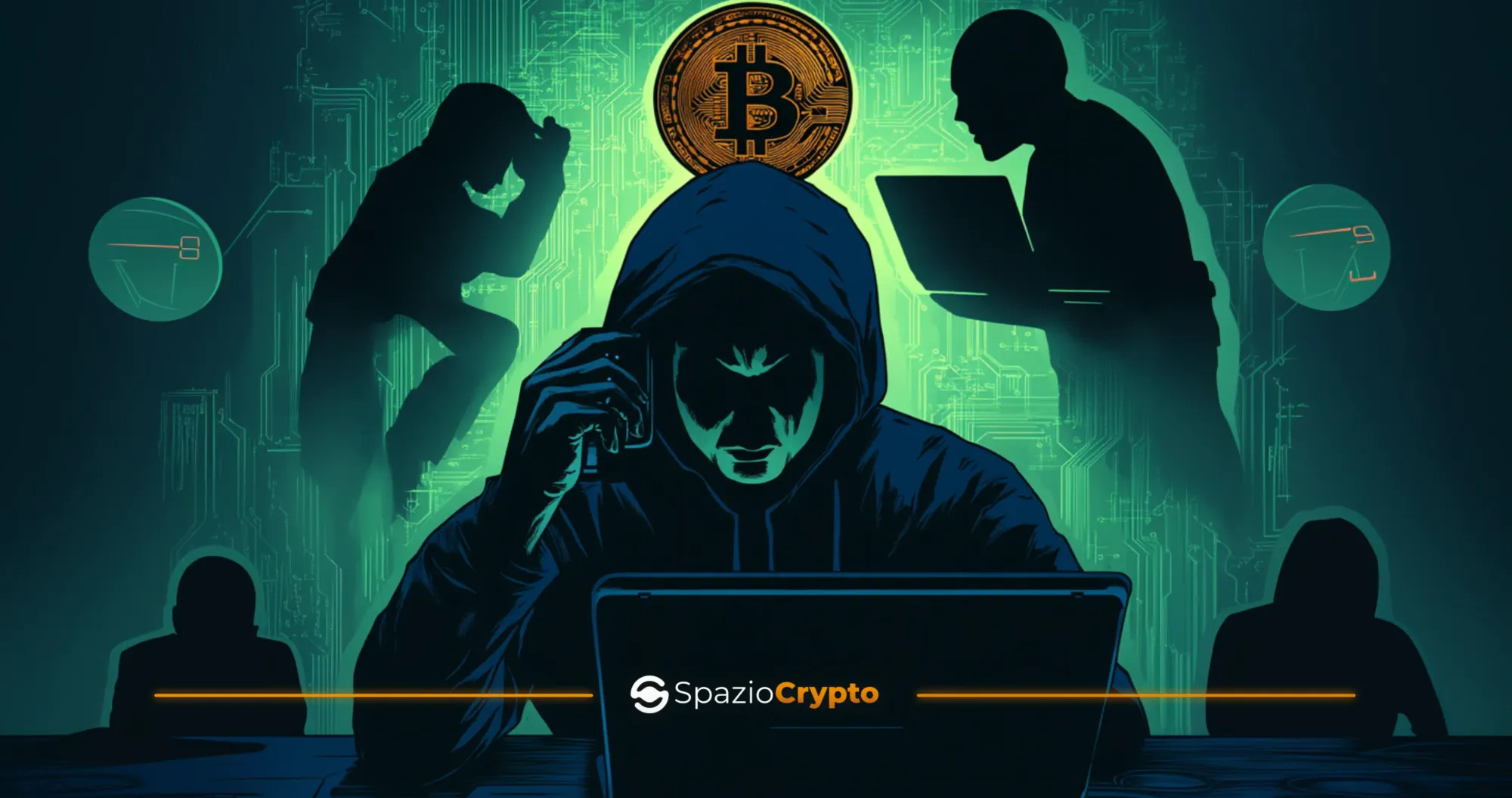The US Federal Bureau of Investigation raises the alarm. The new frontier in online scams involves, despite themselves, the crypto exchange services. In order to steal users' funds, in fact, scammers pretend to be associated with sites that deal in cryptocurrency trading and, after selecting a list of possible victims, contact them through messages or phone calls. In these they alter their identities, posing as associates of exchanges or services similar to them.
The FBI is warning of scammers impersonating cryptocurrency exchange employees to steal your money! If you have been a victim of this scam report the activity associated with it to https://t.co/eGBci0wXVk. https://t.co/ic89u4BDNM pic.twitter.com/dYVLufs0Wo
- FBI Las Vegas (@FBILasVegas) August 1, 2024
How Scammers Attach the Victims
The modus operandi of scammers of this type is quite simple. The scammer contacts his target after obtaining his contact details on the relevant exchange.
Pay Attention to the Authorisations that we Grant on our Data
This step is crucial, in the case of the more elaborate scams, but, as it is rather difficult to trace this data without a high degree of technical skill or the granting of personal data by the user himself - who perhaps clicks quickly when signing up for a new teleservice and gives his data to a third party, as can happen to anyone - not everyone is able to carry it out.
Scammers who cannot exploit this channel use other avenues. A particularly well-trodden one is that of the offer of false job opportunities, frequently from remote. The scammer makes use of a fictitious interface. Through this artifice he tricks the user into believing that he will earn money through simple tasks carried out by video terminal.
At this point, the scammer will offer apparently attractive job opportunities in return for payment (which should already make us run for our lives) in cryptocurrency. The scam is now served: instead of unlocking more jobs, the scammer will drain funds, providing unrealistic earning opportunities.
Scammers know how to Scare and use Primary Emotions
Scammers act on a sense of urgency and exploit primary emotions. Fear is one of the strongest and is often exploited for these purposes. The attacker is able to frighten the victim, signalling to her that there has been a security leak and the account is easily attacked. After talking to her in this manner, he convinces her to act urgently, taking certain actions, commanded by the scammer, to protect the account. In reality, this is when the access keys are taken away.
The less robust scams explicitly ask the victim to hand over their data (if this happens, the scammer's intent is almost certain: no one authorised by an exchange will ever ask for data and credentials over the phone or by email), while the better structured ones require access, via links, to a covert page where one has to fill in fields, with one's own data, in an environment that only appears secure. In reality, we find ourselves on an information acquisition platform operated by fraudsters. It is here that our personal data and wallet access data are stolen.
Defending Yourself from Attacks
Protecting yourself from these scams is not difficult, but you need to keep your wits about you. Should you receive calls or messages warning you of any problems with your account, the best move is not to answer at all and to turn a deaf ear. Fraudsters are skilled and know how to give an appearance of authenticity to the messages they send, regardless of the methods used.
The user must avoid falling into the trap. The FBI advises never to make hasty decisions, and as soon as you receive news of a difficulty with your e-wallet, or online account, you should thank them and hang up. Don't mind the protests, even the more insistent ones on the other end of the phone, which are also a sign that something is wrong.
Then consult the exchange's official support to see if there really is a problem. Of course, you should never use phone numbers or mailboxes reported by the person who reported the issue.
Protect your Own Assets and Report Scammers
We navigate ourselves to our exchange's official account and do not click on links in the text. We do not give out any personal or confidential information, and avoid downloading files attached to the email sent by the scammer.
Major exchange services have forms in their private area through which you can report potential scams. Let's take the time to fill them out, or to report what happened if we speak to support on the phone. The more information we can provide, the easier it will be for law enforcement agencies dealing with cybercrime to trace the IP address of the scammers.
Keep up to date, or keep up to date, with the latest news from the Web3 and cryptocurrency world: subscribe to the newsletter from SpazioCrypto.








